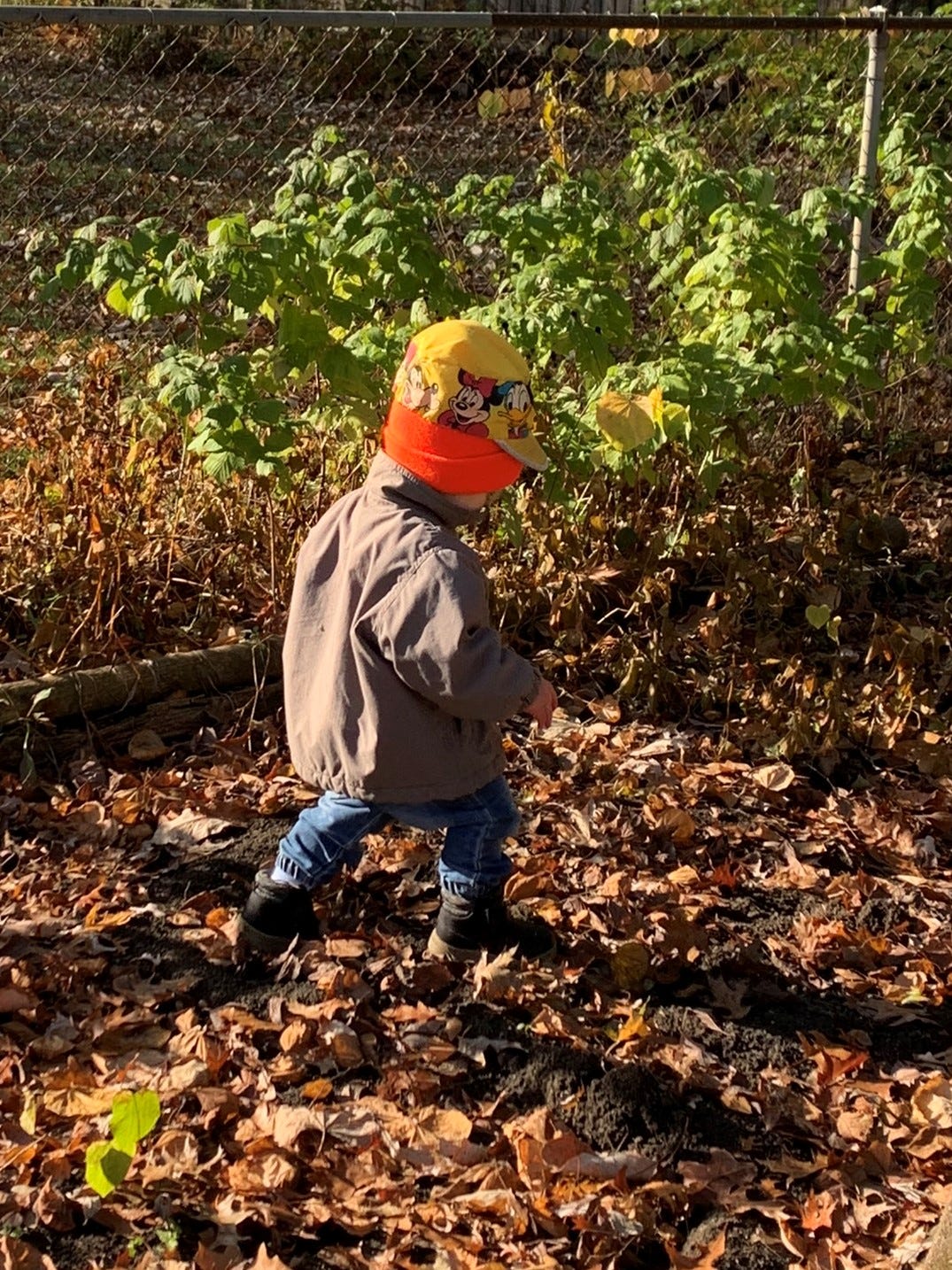Welcome back (and welcome)!
Holidays and holiday gatherings can be challenging in the best of times. Not every family is a Hallmark movie. In times of grief, they are more complicated.
I understand that sense of complication.
That may be why I’ve written about Saint John of the Mall and Giving the Year Meaning. And spoke two years ago for a grief support group. And written a couple times for our health system blog.
This week, I’m sharing what I wrote for the holidays in 2022. If you remember that far back, many of us were still figuring out how to have holiday gatherings.
Next week, I’ll share what I’m writing for 2023. I think that some of us need suggestions for how to celebrate a bit more. I’ll have those suggestions.
Seven suggestions for navigating grief during the holidays.
One Christmas, Nancy and I gave small gifts to my family. They were the tiny-size baby food jars with a little note in each one, letting people know that the following Christmas a baby would be joining the celebration. We laughed, and we cried a little.
Kathryn Anne was born in late July after those gifts. Five short weeks later, she died.
I don’t remember Christmas that year at all.
I do remember, however, that every Christmas since then, a tiny pair of knitted mittens is at the top of the tree, just below the ancient, oft-crushed angel. And when one of us puts the mittens on the tree, there is a momentary pause, a sad smile.
Holidays are all about expectations. Seeing favorite people, eating favorite foods, playing certain games, having the same arguments about who makes the best pie. When expectations are disrupted, whether because of a snowstorm that makes people late, or a death that changes the gathering forever, we are thrown off balance.
Snowstorms become stories. Permanent changes are really hard. Some people want to maintain balance by cancelling everything. Other people want to ignore the loss and go on as normal.
There’s not a right answer. But here are some suggestions that you can try. I pray one helps you to find a new balance in the first (or fifth) holiday season after the loss of a loved one.
Actually remember. Some family members found it too hard to talk about our daughter. Yet, research suggests that most people would rather talk about the person who is gone than ignore them. (And if the person missing was stillborn and had never been to the gatherings, their parents are still acutely aware of their absence. And would be blessed by others recognizing their loss.)
Add a routine of remembrance. The hanging of the mittens acknowledges Kathryn in a small, but important, way.
Consider passing old routines to new people. If grandma always made suet pudding (it’s better than it sounds), let someone try it out with her recipe. If the oldest family member always said a blessing, have the next oldest and the youngest say it together.
Be willing to laugh. Grieving people most often don’t want to be the cause of other people being sad. So laugh at the way someone spills the gravy, and let people join as they can.
Have permission to excuse yourself. (And give others that permission.) If we have a cold, or worse, we give ourselves permission to say, “I’m not feeling well. I can’t come tonight. I don’t want to get anyone else sick.” We can also do that when our hearts aren’t feeling well from grief.
Be willing to ask how people are feeling and be willing to answer honestly. Often, we assume that others are grieving the way we are (or think we would). Often, we’re wrong.
Remember that this year isn’t the same as last year or next year. It’s this year. So honor and remember and acknowledge who is here and who isn’t. Knowing that we can’t predict next year.
We remember Kathryn, though her story unfolded more than three decades ago. Since then, we’ve had many changes in our families and in extended family gatherings. And we’ve laughed and cried often since then.
And I’m expecting that we will this year, too.
You can download seven suggestions for navigating holiday grief.
+++
Remember the best time, not the last time
This week, I stood next to a bed. Grandpa was dying. Grandma said, “our grandson was having such a hard time. I said, ‘remember those things you did together. You are going to need that.’ The next day, he walked in here and told his grandpa about the things they did together.”
It turns out that for some people at least, that’s good advice. Remember the best times, not the last time.
In This is Hard: What I Say When Loved Ones Die, here’s how I wrote about that kind of remembering:
+++
I was talking to somebody recently who had lost a loved one. In the course of our conversation, they were talking about their last conversation with the person who had died. It wasn't necessarily a bad one, but it wasn't a magnificent one, either. She said “If I had known it was our last time talking, I would have done something more significant. I would have said 'I love you', or something like that.”
As we were talking, I said, “Maybe the better thing to do is not to remember the last conversation with your loved one. Why don't you remember the best conversation that you had with your loved one.”
Even as it came out of my mouth I thought, “That's a really good idea.”
Often, as we remember those last conversations, we remember the question we didn't answer, the frustration we felt, the ordinariness. We are saddened by their confusion from medication or the dementia. We lament the fact that we didn't have a last conversation.
What we’d love to remember is the best conversation.
That moment when a parent told us that they loved us, a moment when we had a restoration of relationship, a moment with some clarity of mind where both of you were able to say, "This is what really matters to me. You really matter to me,"
Instead of worrying about that last conversation, start telling yourself and others about the best conversation that you had with that person. And by telling the story, you will make that be the thing you remember.
+++
Thanks for reading and sharing and supporting this work.
See you next week.
Jon
(That’s Ben, our grandson, out making best times.)






